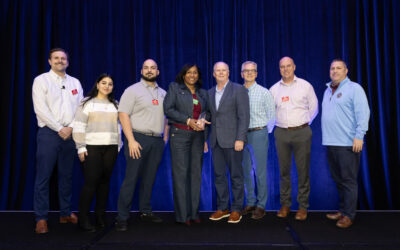What does the next generation of insurance talent want from the industry? This is the question independent agents are considering as they look to optimize recruitment and retention strategies and future proof their agencies.
The best answers come from those in the next generation of talent.[1] The following insights can help independent agents adapt their strategies and approaches to their next-generation workforce.
Cash is not king. While most respondents said multiple factors influenced their choice to pursue an insurance career, respondents ranked earning potential and career stability as two top influencers. But earning potential isn’t limited to dollars and cents. When asked to rank their compensation considerations, health care topped the list at 48%, well above salary (31%). This is consistent with prior surveys and something independent agents should consider as they develop benefit plans for their employees.
Young people also want rewarding careers that afford them opportunities to give back. Students and recent graduates ranked “philanthropy” on par with “career stability” as a top reason they chose insurance, with “rewarding” coming close behind.
Culture matters—but so does industry. Nearly all (98%) survey respondents majored in either actuarial science or risk management. It is no surprise that actuary—in both life/health and property/casualty—ranked as the top insurance role graduates currently are pursuing. P/C roles as underwriters and brokers ranked third and fourth, with reinsurance underwriting and risk manager completing the top six. Agent ranked ninth at about 12%.
And while industry specialty and segments are important, what is more important, according to the respondents, is corporate culture. Students ranked culture as their No. 1 differentiator when comparing companies. This is where independent agents with a strong corporate ethos can gain a recruiting advantage.
Timing is (almost) everything. Another trend to consider is the timing of job offers to prospective hires. The survey indicates a significant disconnect in the recruitment timeline. Nearly 40% of students expect full-time employment or internship offers to arrive between August and October, while about half of employers anticipate making those offers before school starts (between May and July). As such, employers should communicate clearly with prospective hires.
Hybrid, not remote. Does the work environment matter to younger employees? Yes. Two-thirds (63%) of students said they prefer a flexible work environment. Agencies already offering hybrid work models may have a leg up on their competition for talent.
Raising awareness among emerging talent. When graduates were asked if they originally intended to pursue an insurance career, 75% said yes. While that number may sound impressive, it represents a 10% drop from 2021.
Expand momentum
Here are three ways independent agents can raise awareness and expand the momentum of emerging talent pursuing insurance and risk management as a career:
No. 1: Create strong and meaningful internship opportunities. About one-quarter of respondents ranked internships as the most meaningful investments companies can make in students. That is up 6% from last year and puts internships in second place behind scholarships.
Internships not only raise awareness, but they also can inspire young talent to join a company for the longer term. More than half (54%) of students say they seek internships to find full-time employment, and 53% of those who complete an internship say they would return to the same employer for either another internship or for full-time employment.
No. 2: Attend career fairs. When asked to list their preferred job search or engagement opportunities, students selected both in-person (54%) and virtual (57%) career fairs as their top choices, well above in-person on-campus interviews (16%) or online information sessions (14%). And while virtual career fairs draw potential students, 83% of respondents say they prefer face-to-face engagement with recruiters.
No. 3: Embrace diversity, equity and inclusion. While some agents report experiencing “DEI fatigue,” diversity, equity and inclusion remains important for younger workers. Sixty-one percent of respondents said they felt there was sufficient diversity in their internship or full-time employment, but that represents a 5% decrease from 2021 data. The takeaway for independent agents: Find ways to work through DEI fatigue and invest in additional initiatives that will continue to enhance your agency’s diversity.
Independent agents may not have the same resources as many carriers when it comes to attracting and retaining the next generation of professionals. Yet by listening to the needs of students and investing in the right areas, independent agents can create talent strategies that will help them level the playing field.
[1] Gamma Iota Sigma, annual Recruiting Survey Report. Compiled responses from nearly 1,200 students and recent alumni representing 102 colleges and universities throughout North America.

Grace Grant
Grace Grant is the executive director of Gamma Iota Sigma (www.gammaiotasigma.org), the insurance industry’s premier collegiate talent pipeline. She is responsible for the organization’s strategic direction and management of all governance-related matters, including the Board of Trustees and its committees. Prior to joining Gamma Iota Sigma, Grant served in several roles at the Griffith Insurance Education Foundation.





